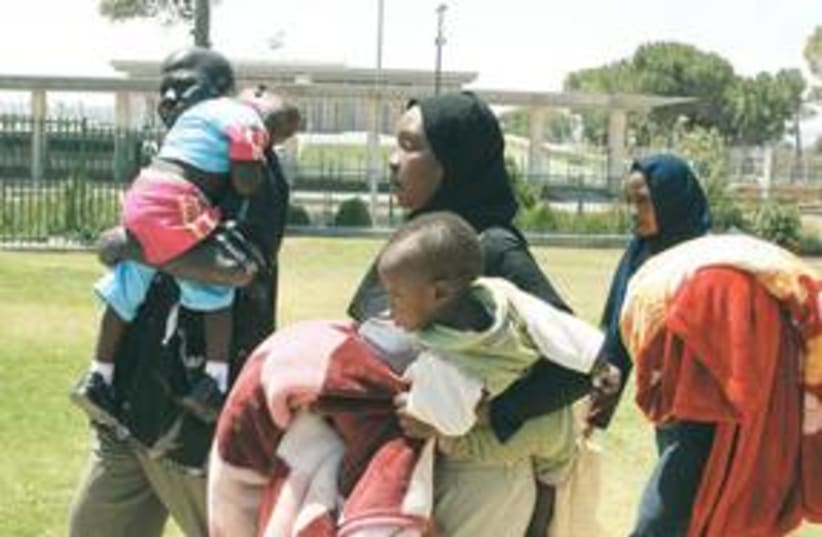Policy remains 'Every person is a human being'
The statement cited the city’s founding of the Mesila Aid and Information Center for the Foreign Community, which was established “based on the world view that every person is a human being and it doesn’t matter who he was, what he is, where he came from and where he is going. This will remain our policy in the future as well.”The statement also clarified that City Councilman Benyamin Babayouf (Shas) was not behind the petition, and that the council was in no way connected to the initiative. According to the statement, city hall also had no legal authority to prevent the issuing of the petition.The petition said the neighborhood and synagogue rabbis who signed it “warn the public about the halachic prohibition and the predicted danger of renting homes to these people!!!” The rabbis cite the Shulchan Aruch to back the initiative and quote the Talmud as saying ”Do not have mercy on them.”Many rabbis added messages next to their signatures, such as “May whoever helps preserve the Jewish nature of Tel Aviv be blessed.”The petition also quotes what it says are police figures saying that foreign workers and refugees account for 40 percent of crime in the Yiftah police district that covers Jaffa and south Tel Aviv, including the area of the central bus station.A spokesman for the Tel Aviv police on Thursday said that he was not familiar with such figures on crime in the Yiftah district.Petitioner: 'Foreigners are violent'One of the initiators of the petition, Rabbi Ahiyad Ettinger, told The Jerusalem Post on Thursday it was sent out because the foreigners in south Tel Aviv “are a violent population that is responsible for a great deal of crime. This is something we see with our own eyes.”Ettinger, who heads the Beit Midrash at the Orot Aviv Yeshivat Hesder in the Shapira neighborhood, near the central bus station, mentioned a number of violent incidents that he said involved foreign residents, including cases of rape, murder and assault. He described the community as one where the elderly are afraid to walk around at night and where parents avoid letting their children roam free after the sun goes down.Ettinger said the problem of foreign workers and refuge-seekers isn’t confined to Tel Aviv and cities in the Negev, calling it a “national problem” that will eventually overrun all of Israel.The rabbi said the solution is for the country to completely seal the border with Egypt, to build a gate, and finally, to send the refuge-seekers to countries that want them, mentioning in particular Australia.He also denied that the thousands of illegal residents are refugees fleeing persecution in their homelands, saying that they are coming purely for personal economic reasons, and because they have heard that Israel is a democratic, relatively prosperous country.Katz: Tel Aviv 'bleeding hearts' don't fight for their homesMK Ya’acov Katz, chairman of the National Union, on Thursday responded to the uproar over the petitions, saying, “It’s very troubling that the bleeding hearts in Tel Aviv don’t have the fundamental mental strength even to fight for their own homes.”Katz, the chairman of the Knesset’s Committee on Foreign Workers, added that “just like in Judea and Samaria, also in Tel Aviv, the only people who are fighting over the future of Israel’s homes are the moral national religious Zionist community.”Tel Aviv, “the first Hebrew city, is turning into the largest African city in the region,” he said.In recent months, protests have been held in the southern Tel Aviv neighborhoods of Hatikva and Shapira, against the influx of illegal immigrants and refuge-seekers.On Wednesday, Eilat Mayor Meir Yitzhak Halevi launched a campaign to “save the city” from African “infiltrators” who he said are overrunning his city.“The city is losing its identity. Every day that passes, more and more infiltrators cross the border and join the city’s population,” he said. “Already every sixth resident of the city is an infiltrator. Eilat is home to 7,000 illegal migrants, making up 15% of the city’s population,” Yitzhak Halevi told a press conference.The mayor accused the government of ignoring the issue.
Lahav Harkov contributed to this report.
